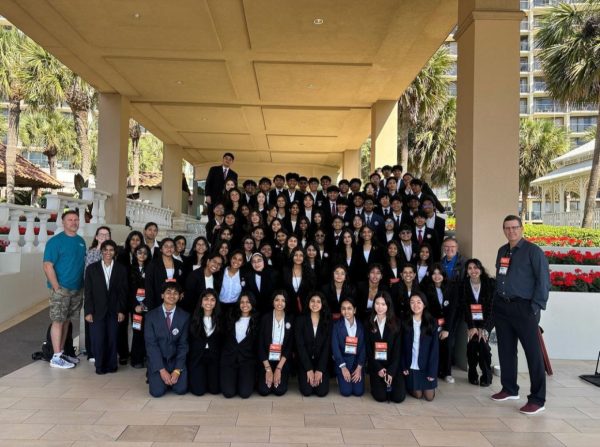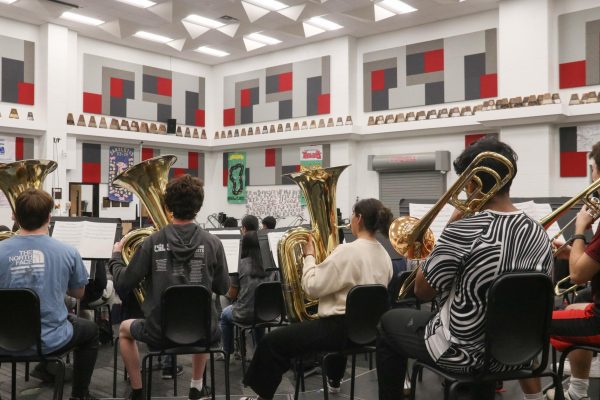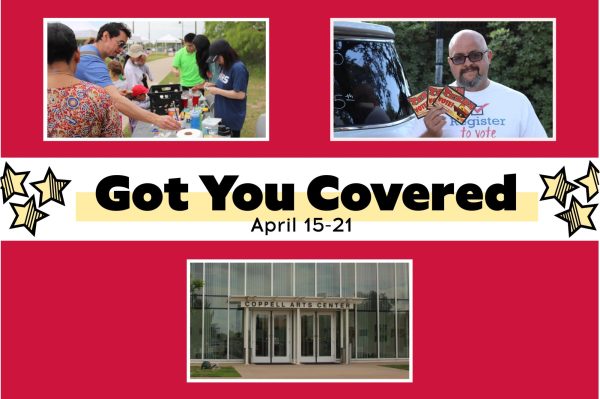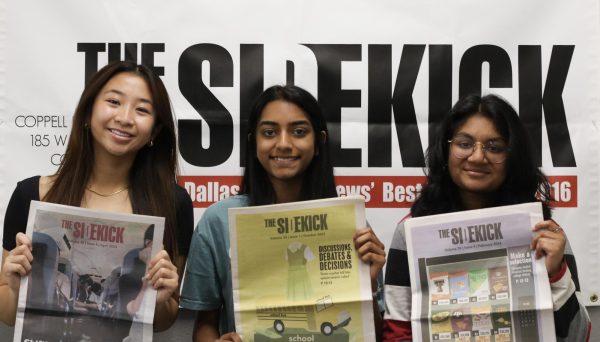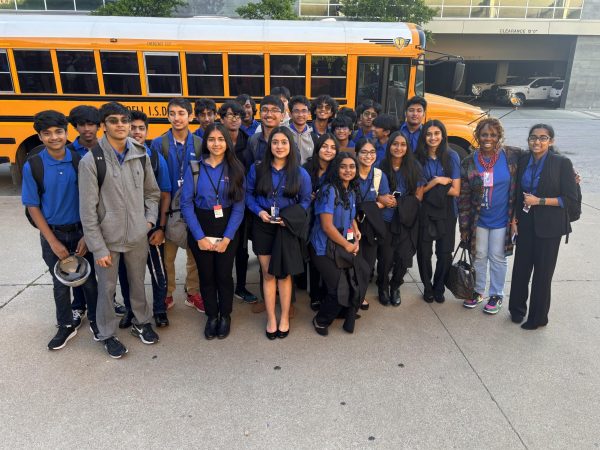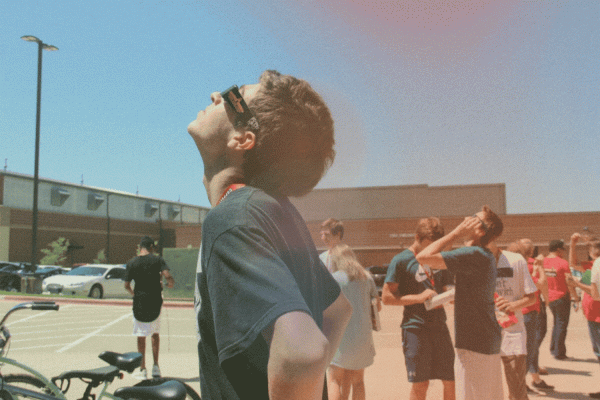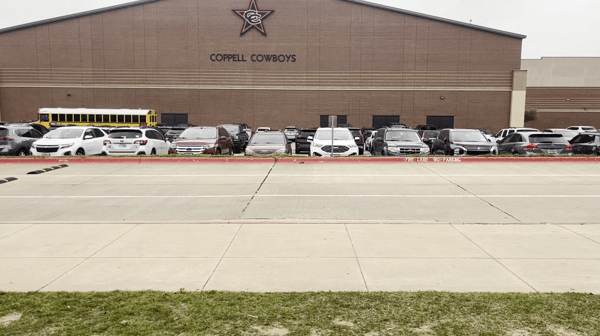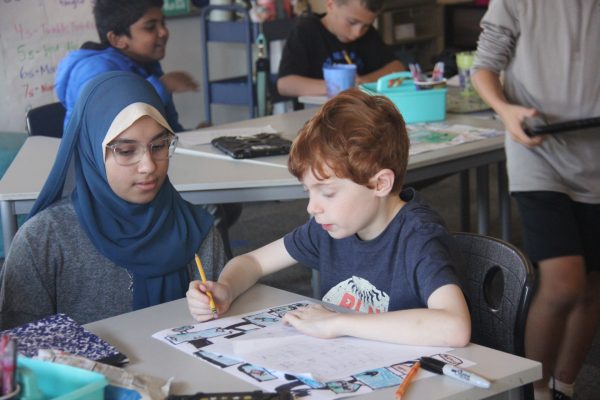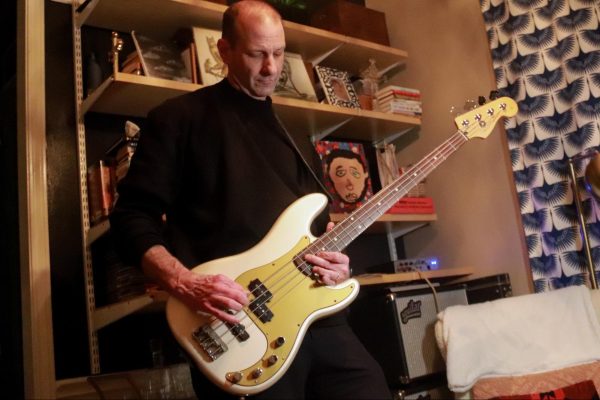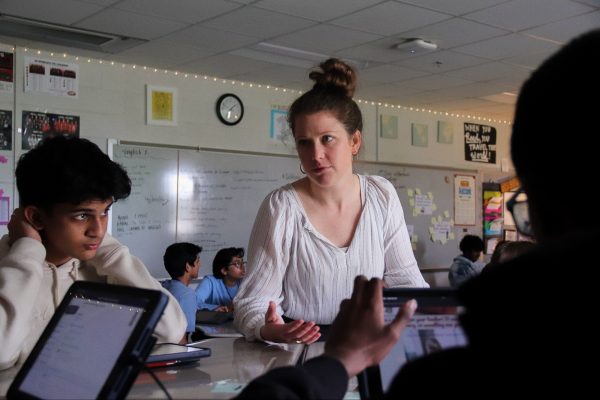Students find identity in high school journalism
JEA/NSPA Fall Convention brings insight to thousands of young journalists
INDIANAPOLIS- In a world dominated by social media, journalism is dramatically evolving. At the JEA/NSPA Fall National High School Journalism Convention at the JW Marriott, thousands of high school journalists learned how they could take steps to evolve with it.
“I think journalism is more alive than ever,” said Jonathan Rogers, advisor of the Iowa City High School student news organization The Little Hawk. “There’s never been more of a need and search for journalism online and in print to know what’s going on.
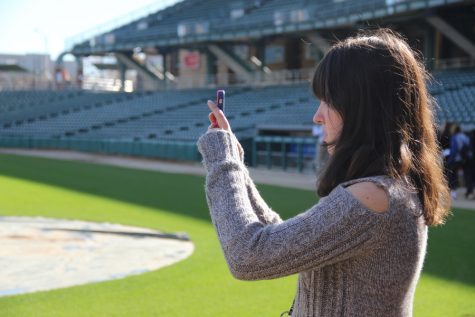
On Friday morning, one of the many attendees of the Photo walk at Victory Field session at the JEA/NSPA Fall National Journalism Convention takes photos at Victory Field. A variety of unique sessions were offered to high school journalists at the Indiana Convention Center from Nov. 10-12.
Rogers does admit, however, that jobs in this industry are disappearing and young journalists will need to diversify their skills to make themselves marketable to employers. In fact, Rogers taught a session on Friday at the convention about one such skill – promoting a news site through social media.
“There’s not as many jobs and I think that’s one of the sad truths,” he said. “But the need for good journalism is still very prevalent.”
For many young journalists at the convention, the meaning of their job extends beyond just writing or taking photos. Diego Dela Rosa, a junior at San Diego’s Bonita Vista High School and entertainment editor at its newspaper The Crusader. Like many young writers, he fell in love with journalism through creative writing.
“I always thought storytelling had to be this thing where you make fake characters and make a plot and get people entertained,” Dela Rosa said. “Going through high school and meeting new people, I realized these stories are alive in our world. Journalism to me is recognizing that everyone has a story and we can’t make assumptions.”
In his first year on newspaper, Dela Rosa has already been named an editor. He says that he never anticipated becoming this passionate about it.
“When I used to think about journalism, I used to think of it as boring and very dry,” he said. “There’s so much more. It’s our job to make sure everyone is educated about what’s going on around us.”
According to Dela Rosa, the most meaningful moment he has had in student journalism is clearing a misperception about a teacher he disliked.
“I wrote a feature story my first issue about a teacher that I was horrified of,” he said. “After the interview, I sort of learned that he’s a human. A lot of times you have these assumptions of people and then your realize you have a lot more in common than not. I forgot he was human for a moment.”
He says he has maintained strong connection with this teacher and they still talk to each other regularly.
When Del Rosa graduates, he plans on pursuing a career in storytelling through broadcast journalism.
“Print journalism can do a lot, but the human voice carried so much depth and nuance to it,” he said. “I feel like people need to hear that to feel it. It really brings out the human aspect.
“These days, there’s so much you can do with journalism online. To the people who claim journalism is dying, I think it’s more alive than ever.”
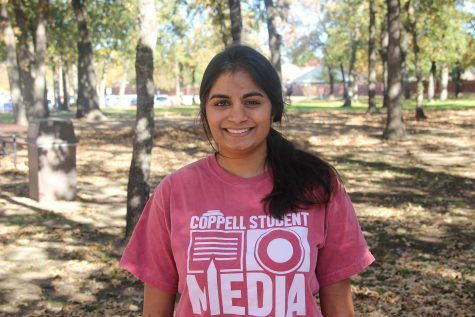
Sakshi Venkatraman is a senior at Coppell High School. This is her second year as news editor and third year on staff. Sakshi enjoys writing creatively...
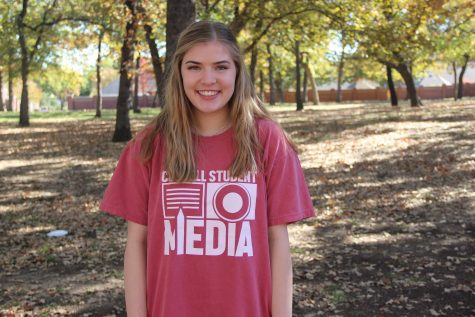
Amanda Hair is a senior at Coppell High School, this being her final year on The Sidekick and her first year as the Sports Photography Editor. She is also...



